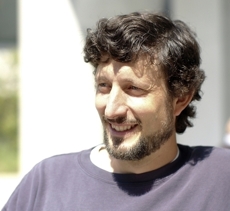Medpedia takes the next step forward with clinical trials


Working with a government service called Clinicaltrials.gov, Medpedia has launched a new clinical trial platform, available here.
Unlike the government service, Medpedia's system lets you "push" results, so that they show up in a note to someone with the relevant condition, or in a patient community.
Entrepreneur James Currier (he founded Tickle, which Monster.com closed in 2008 after buying it in 2004) is still funding Medpedia himself, while working on some possible business models.
Currier spoke with ZDNet Healthcare yesterday.
"We're in the business of building a platform that will allow HIPAA compliant discussions among doctors and specialists and patients. We'll open an API that lets everyone use it. Then we can charge the medical world."
Currier launched Medpedia in 2009 as a Mediawiki implementation with extensive moderation, taking contributions only from professionals who are hand-screened. Currier said he has 1,200 contributors now, and avoids problems with a control that lets the site bulk erase all contributions from anyone who violates its rules.
Currier said he took time out after selling Tickle, and developed the idea after a conversation with Lotus founder Mitch Kapor. "He said he had been thinking about it for years."
Currier has four kids, the eldest of whom is asthmatic, but said he was "shocked" when he went to research the condition online, finding a lot of information without scientific validity. Medpedia is his attempt to change that.
"We started with a Mediawiki implementation. We started adjusting it based on the needs of the medical community for acknowledgment, for having a clinical as well as a plain English page.
"We made 35 modifications to the platform to let it work better for the medical world. Then we added a Linkedin for the medical world, where profiles are designed to show medical pros in their best light.
"The idea is to force transparency, allow for flagging, and know that non-scientific stuff will get washed out faster here than in paper or in conferences."
The result started a lot smaller than sites like Wikipedia, which are wide-open, but Currier said he expected this to be a 10-year project.
"What we've seen so far are the rational people taking their existing content onto the system, bringing it in, modifying it and linking it."
It's no Tickle, but maybe it will last a lot longer. "It's a matter of starting with a quality content base," he concluded. And moving forward from there.